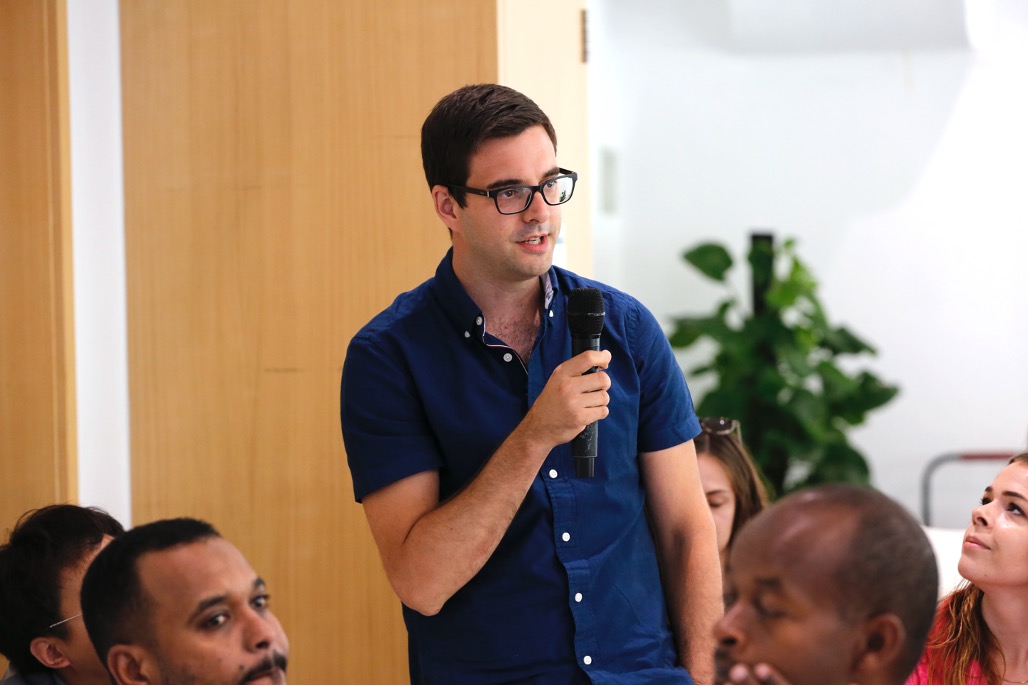With the theme 'AI for Life Sciences,' BGI College hosted an impressive convergence of minds from across the globe at the BGI International Summer Workshop and the Youth Symposium of the 18th International Conference on Genomics (ICG-18).
The workshop brought together 17 international scholars, young researchers, and professors from nine countries. The workshop and conference were not only a platform for them to learn the latest developments of BGI Group in genomics and biotechnology, but also an avenue to interact with experts from around the world and over 200 students from various colleges in China.
In this interview, we talked with a guest speaker of the symposium, Dr. Guillem YIla, an assistant professor at the Jagiellonian University in Kraków, Poland, and head of the Laboratory of Bioinformatics and Genome Biology. Dr. YIla shares his experiences in building a partnership with BGI and discusses the impact of collaboration and exchange programs on students and research in the field of omics data and bioinformatics.
 Dr. Guillem Ylla participated in discussions at the symposium.
Dr. Guillem Ylla participated in discussions at the symposium.
Q: Could you please introduce yourself?
My name is Guillem YIla, and I'm an assistant professor at the Jagiellonian University in Kraków, Poland. I'm also the head of the Laboratory of Bioinformatics and Genome Biology, in which we use different omics technologies to study animal evolution.
Q: How did you become acquainted with BGI, and could you share your story with BGI with us?
I got in touch with BGI following the opening of their laboratory in Warsaw, Poland. We held a meeting with a BGI delegation to sign a Memorandum of Understanding (MOU) to facilitate the exchange of students and researchers between one of the oldest institutions in Poland, the Jagiellonian University, and one of the most modern and technologically advanced institutions, BGI.
Our students will not only be training in a modern, technologically advanced institution but will also acquire scientific knowledge from our traditionally rooted scientific community in Poland.
Q: Could you share your impressions of BGI?
I am very impressed with all the developments that BGI has made in terms of technology and pushing the boundaries of science. All the infrastructure, the machines, and people, are very impressive. BGI has created a great atmosphere for allowing the researchers to develop their research, with state-of-the-art methodologies and techniques.
Q: What has been the most memorable aspect of the last few days, and why did it leave such an impression?
We had a lot of fun with all the other people from around the world whom we have been talking with these days. We learned a lot in the workshops and were fascinated with all the talks from the CEO and the founders of BGI on how BGI became what it is now, and the future opportunities for BGI. The research talks have also been very interesting. We learned a lot about the new results and developments in research in the field of omics data and bioinformatics. Overall, I think that everything has been very memorable.
Q: Have the activities at BGI sparked any new interests or intriguing research directions for you?
Yes. One of the reasons that I came here is that I've been in touch with a research group from BGI-Research. We are now trying to undertake a research project together, a collaboration between the two laboratories in the field of using spatial transcriptomics.
Q: How do you feel about interacting with students from different countries and regions? What kind of abilities do you believe the BGI program can impart to students?
It's been nice to meet so many students, a lot of students from BGI but also from around the world. It is a very international atmosphere.
One of my master's students will be coming to BGI College. That's another reason for me to be here, to understand what his future experience will be like. I'm so happy to see that he will be warmly welcomed and surrounded by so many great people from all around the world.
Q: What kind of exchange activities would you like to see BGI organize to promote further communication and collaboration?
I think BGI is taking very good steps to establish these kinds of collaborations with universities, such as creating an exchange program with Jagiellonian University so that BGI students can come to Europe, and our students can also come to BGI to learn the technologies that can be implemented back in Europe.
At the same time, our students can bring their knowledge to BGI with new research questions on biology, which can be answered using the technologies developed here.
So, there is a lot of power in creating these joint and exchange programs between universities and BGI.



